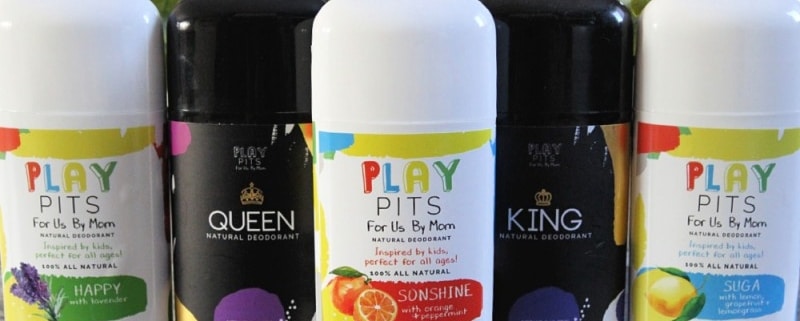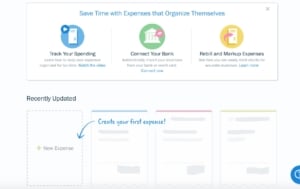Congratulations to Cafe de Stir it Up, an Alaskan-based small coffee shop and eatery that offers dietary-restriction-friendly fare, for receiving one of five third-place prizes in Kapitus’ inaugural Building Resilient Businesses (BRB) contest! Cafe de Stir it Up has received $20,000 to help grow their business
The world at large has undergone a dietary revolution in recent years. As nutritional choices and restrictions become more commonplace, eating at restaurants and cafes harbors much less anxiety for all those with limitations. Cities like New York, London, and even gastronomically-traditional Paris have numerous vegan, gluten-free, and other restriction-conscious spaces. But under Alaskan skies, such great expectations ought to be adjusted … or should they? Enter Café de Stir it Up, owned and operated by Michaella Perez, the premiere locale for dietary restriction-friendly fare in Fairbanks, Alaska.
“Some people wonder why we withstand -25-degree plus temperatures, but there is just something about the Golden Heart City that keeps us here,” said Perez. And the voters of Kapitus’s Building Resilient Businesses Contest agreed, giving Perez and Stir it Up enough votes to earn them a $20,000 grant.
After capturing minds and hearts in the BRB contest, now is our chance to learn more about the soul behind Stir it Up and what inspired a mom, entrepreneur, and visionary to bring dietary freedom to Fairbanks.
Authentic Inspiration
Stir It Up is a business born from inspiration rather than cold data. While a Starbucks or McDonald’s will go up on a corner because analysts calculated that area has the most foot traffic and potential for sales, Stir It Up came to be because a determined and business-savvy mother wanted to heighten the lives and experiences of those in her community. Dietary restrictions exist in a complex space where – until you, or someone you know well are faced with one – it can be hard to visualize how hard getting a good meal can be. Gluten-free, lactose mal-absorbent, vegetarian, vegan, keto, egg-free – it may sound like a fantasy to meaningfully serve these incrementally demanding restrictions, but according to Perez, it’s just part of the job.
After seeing one of her children deal with the unending blandness of most allergy-safe meals – white rice and salads can only last so long – Perez knew she could make dietary restrictions not just manageable but delicious and fun. “To survive in this market, you have to have a niche,” explains Perez. Café Stir it Up isn’t simply prepared for dietary restrictions; they are up to the challenge. “I realized that my community had a need: a place that truly understood dietary challenges,” Perez said about her business. With a gluten-free bakery and a collection of dairy substitutes on-hand, it is near-inconceivable for someone not to find the proper fix for their dietary lifestyle.
Power to the People, Power to Grow
In 2015, Perez and her team expanded to a brick-and-mortar location in Fairbanks, making the “café” in their namesake true to its merits. Now with increased capacity for customers and service, Café Stir it Up quickly became a community gathering spot for the Fairbanks community and everyone else willing to brave the cold.
“Little did we know that we would be negatively impacted by a pandemic, major road construction, and shortages of revenue, supplies and employees,” Perez explained when talking about the challenges of maintaining Stir it Up. Cafés especially faced a share of hardships during the pandemic, and hiring troubles can quickly become hiring crises when the applicant pool only includes the greater Fairbanks area.
Keeping Cafe Stir it Up alive during the most challenging moments didn’t happen by chance or coincidence; Perez and her team put in the hours. Through engagement with their local community and a commitment to serve Fairbanks as best they could, Perez and her team got creative and survived as a result. Especially for those with dietary restrictions, Stir it Up stands for much more than a place to get good coffee and service. By having a business serve your needs, that business further justifies the legitimacy of your needs. Stir it Up gives a voice to a community that is usually restricted to much larger urban areas. While a dietary-restriction-friendly café may be a drop in the bucket in New York City, the people of Fairbanks know how lucky they are to have Stir it Up.
BRB for Growth
After submitting her video to the Kapitus Building Resilient Businesses Contest, Perez, and Stir It Up, found lots of love during the public voting phase. She and her team took home one of the five third-place prizes of $20,000. “We are ecstatic to win this prize,” Perez said. “So, to think…little old me in little ol’ Fairbanks won something and took third. This is huge for us. We are honored. $20k is going to help SO much.”
One of the many goals of the BRB contest is to enable small businesses to strengthen their communities. There are few better examples than Stir it Up and Perez when it comes to community empowerment. With these resources from BRB, Perez doesn’t just improve her business. With every coffee and meal served, Stir it Up fosters a home for dietary freedom.
Learn the stories of all of our small business winners:
BRB Stories: After Devastating Setback, Play Pits Takes First Place in Kapitus’ BRB Contest!
BRB Stories: Relying on Faith and Passion for Business Success
BRB Stories: Creating Libraries-worth of Unforgettable Memories!






















